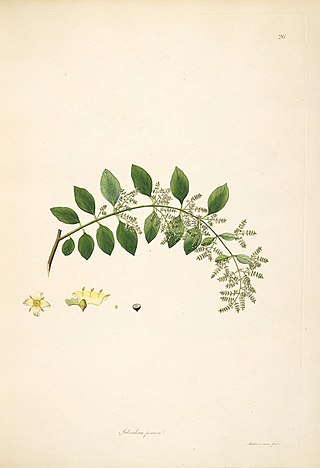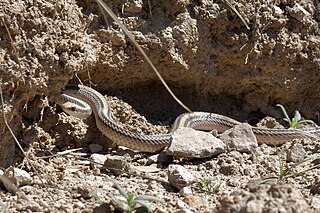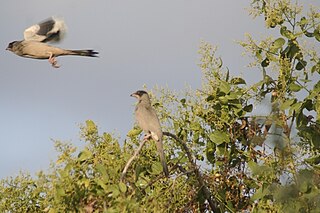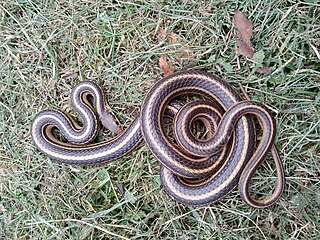
Anacondas or water boas are a group of large boas of the genus Eunectes. They are a semiaquatic group of snakes found in tropical South America. Three to five extant and one extinct species are currently recognized, including one of the largest snakes in the world, E. murinus, the green anaconda.

Salvadora persica or the toothbrush tree is a small evergreen tree native to the Middle East, Africa and India. Its sticks are traditionally used as a natural toothbrush called miswak and are mentioned by the World Health Organization for oral hygiene use.

Salvadora is a genus of colubrid snakes commonly called patchnose snakes or patch-nosed snakes, which are endemic to the western United States and Mexico. They are characterized by having a distinctive scale on the tip of the snout.

The Colubrinae are a subfamily of snakes within the family Colubridae. It includes numerous genera, and although taxonomic sources often disagree on the exact number, the Reptile Database lists 717 species in 92 genera as of September 2019. It is the second largest subfamily of colubrids, after Dipsadinae. Many of the most commonly known snakes are members of this subfamily, including rat snakes, king snakes, milk snakes, vine snakes, and indigo snakes.

Salvadora is a genus of flowering plants in the family Salvadoraceae.

The Italian Aesculapian snake is a species of snake in the Colubridae family.

Salvadora hexalepis, the western patch-nosed snake, is a species of non-venomous colubrid snake, which is endemic to the southwestern United States and northern Mexico.

Siona lineata, the black-veined moth, is a moth of the family Geometridae. The species was first described by Giovanni Antonio Scopoli in his 1763 Entomologia Carniolica.

Pilu oil is an extract from seeds of the Pilu tree, also known as the toothbrush tree. It is used for soaps, detergents, and resist dyeing.

Prosymna is a genus of elapoid snake. It is the only genus in the family Prosymnidae. They were formerly placed as a subfamily of the Lamprophiidae, but have been more recently identified as a distinct family.

Salvadora bairdi, also known commonly as Baird's patchnose snake and la culebra chata de Baird in Mexican Spanish, is a species of snake in the subfamily Colubrinae of the family Colubridae. The species is native to central Mexico.

Salvadora deserticola, the Big Bend patchnose snake, is a species of snake of the family Colubridae.

Salvadora grahamiae, also known commonly as the eastern patch-nosed snake and the mountain patchnose snake, is a species of snake in the family Colubridae. The species is native to the southwestern United States and adjacent northeastern Mexico.
Salvadora gymnorhachis is a species of snake in the subfamily Colubrinae of the family Colubridae. The species is endemic to Mexico.
Salvadora intermedia, the Oaxacan patchnose snake, is a species of snake of the family Colubridae.
Salvadora lemniscata, the Pacific patchnose snake, is a species of snake of the family Colubridae.

Salvadora mexicana, the Mexican patchnose snake, is a species of snake of the family Colubridae.

















